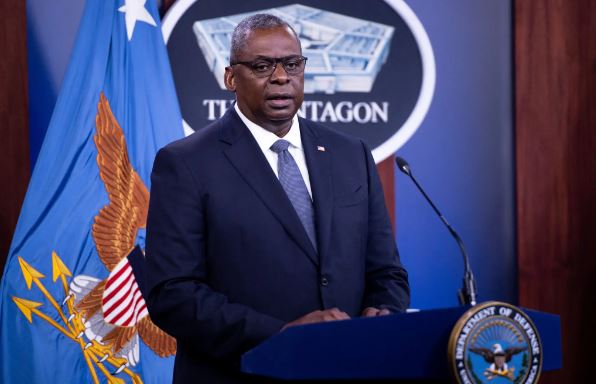In the early hours of Tuesday, the United States carried out a fresh round of airstrikes in Iraq as a response to a drone attack on the Erbil air base by Kataib Hezbollah and affiliated groups. The drone attack, occurring just hours before the retaliatory strikes, left three American service members injured, one critically. The airstrikes targeted three facilities utilized by Kataib Hezbollah, an Iranian-backed militia group in Iraq.
The National Security Council spokeswoman, Adrienne Watson, confirmed that these actions were taken in retaliation for a series of assaults, underscoring the drone attack on Erbil air base. Watson reported that President Joe Biden, upon being informed of the Christmas morning attack, directed the Defense Department to prepare response options. Later in the day, he authorized the airstrikes, which were conducted around 8:45 p.m. Eastern time.
Defense Secretary Lloyd J. Austin III expressed his concerns and sent his prayers to the injured Americans, stating, “My prayers are with the brave Americans who were injured.” The Biden administration has been navigating a delicate balance, seeking to deter Iranian-backed groups responsible for near-daily rocket and drone attacks against U.S. forces in Iraq and Syria while avoiding a broader escalation into a full-scale war.
The targets of the strikes were facilities associated with Kataib Hezbollah that had been utilized for launching unmanned aerial drone attacks. Last month, the U.S. targeted an operations center and a command-and-control node south of Baghdad used by the militia group. Kataib Hezbollah’s political wing is part of the coalition led by Iraqi Prime Minister Mohammed Shia al-Sudani.
Since the October 7 attacks by Hamas on Israel, Iranian-backed groups in Iraq, Syria, and Yemen have escalated attacks on American troops, bases, and commercial ships in the Red Sea. The Biden administration has responded with retaliatory airstrikes against militants in Iraq and Syria. Notably, it has refrained from targeting Houthi militants in Yemen, despite their attacks on Red Sea traffic.
U.S. Central Command released a statement indicating that the early assessments of the latest airstrikes in Iraq suggested the destruction of the targeted facilities and the likely death of a number of militants. Importantly, there were no indications of civilian casualties. The statement emphasized that the strikes aimed to hold accountable those directly responsible for attacks on coalition forces in Iraq and Syria, intending to degrade their ability to continue such actions.
The situation underscores the ongoing challenges the Biden administration faces in managing the region’s complex dynamics. Striking a balance between responding to attacks and preventing a broader conflict requires careful consideration. The administration’s approach involves targeted actions against specific groups while refraining from actions that could escalate tensions further.
The incident reflects the broader geopolitical tensions in the Middle East, with various actors vying for influence and engaging in proxy conflicts. The Biden administration’s response signals a commitment to protecting U.S. forces and interests in the region while avoiding measures that could lead to a wider military engagement.
As the situation unfolds, the administration will continue to assess its approach to dealing with Iranian-backed militias and other groups posing a threat to U.S. personnel and allies in the region. The delicate task of maintaining stability and deterring aggression remains a central challenge for U.S. foreign policy in the Middle East.

